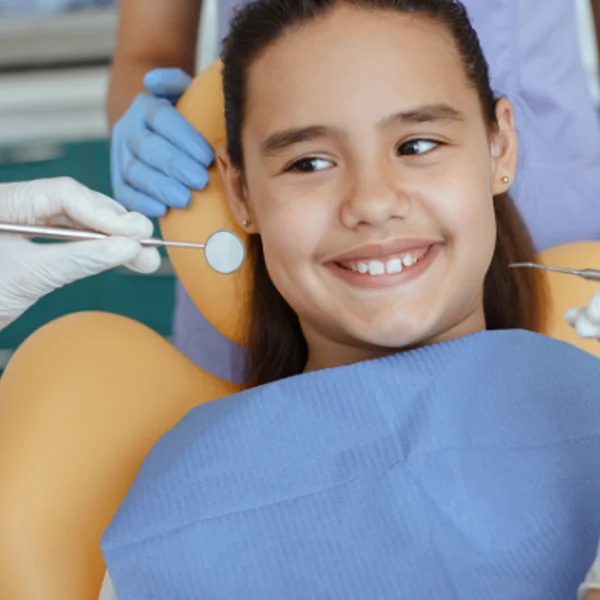“Patient safety from the start!”, the theme for World Patient Safety Day 2025 is a timely reminder that protecting the health of children means looking beyond the obvious. While medical and surgical safety often takes centre stage, oral health is too often sidelined, despite its profound impact on a child’s recovery and wellbeing.
Why Mouth Care Is a Patient Safety Issue
Hospitalised children, especially those who are acutely unwell, tube-fed, undergoing cancer treatment, or living with complex needs, face a significantly heightened risk of poor oral health. Without daily oral care, plaque builds up rapidly, increasing the risk of infections, oral pain, and systemic complications such as aspiration pneumonia or sepsis all avoidable harms that compromise recovery and prolong hospital stay.
For example, a child undergoing chemotherapy may suffer from severe mucositis if mouth care is neglected. This not only causes pain and feeding difficulties but can also delay treatment, increase hospital costs, and necessitate stronger pain relief, including opioids. A simple intervention brushing twice daily with fluoride toothpaste can mitigate these risks.
The Mini Mouth Care Matters Approach
As the founding national lead for Mini Mouth Care Matters (Mini MCM), I am incredibly proud of how far this initiative has come since we launched it in 2019. What began as a small-scale pilot has grown into a national movement, utilised in clinical practice across hospices, hospitals, and community settings.
Mini MCM was created to embed essential oral health practices into the routine care of children and young people in hospital settings. Just as pressure area care or fluid balance is routinely monitored, so too should the mouth be considered — because neglecting oral health results in avoidable harm.
Rooted in the philosophy that children’s oral health is everybody’s business, Mini MCM empowers all healthcare staff not just dental professionals to prevent oral health complications. Nurses, speech and language therapists, dietitians, doctors and carers all play a role. Through practical tools, targeted training, and visual prompts, Mini MCM supports safe, consistent daily mouth care for all children.
A paediatric patient safety pilot in UK children’s hospices found that implementing Mini MCM improved oral assessments, reduced oral-related incidents, and reassured families that their child’s whole health including their mouth was being prioritised.
Empowering Parents and Children
Crucially, Mini MCM engages parents and caregivers, equipping them with knowledge and confidence to provide safe, effective mouth care and supporting them in advocating for their child. This shared responsibility fosters a culture of compassion, comfort and dignity — especially vital for children with additional needs or long-term conditions.
Mini MCM also provides age-appropriate materials to empower children to look after their own oral health. From brushing charts to sensory-friendly mouth care resources, it respects children’s rights to be involved in their care and recognises that dignity and comfort are key to safe, compassionate practice.
The Bigger Picture
Mini MCM embodies the ethos of “Making Every Contact Count” and reflects a wider cultural shift to “put the mouth back into the body” — recognising oral health as an essential part of systemic health and safety.
I’m delighted that the British Society of Paediatric Dentistry and the Royal College of Paediatrics & Child Health supports this initiative and showcases Mini MCM resources for professionals on their websites. This partnership ensures more clinicians and teams can access essential tools to improve care.
A Call to Action
The WHO has issued a powerful challenge: to eliminate avoidable harm in neonatal and paediatric care. That challenge must include the mouth. Oral neglect is not without consequence — it causes pain, infection, and clinical deterioration. Yet it is one of the most preventable patient safety risks.
If we are serious about delivering safer care for children, then oral health must be included in hospital metrics, CQC inspections, and national safety frameworks. Oral care, like hand hygiene or medication safety, is fundamental to safe, high-quality care.
Mini Mouth Care Matters provides a clear, practical pathway to embed oral care into safety systems, and must not be seen as an optional extra. By making Mini MCM a mandatory requirement— not just best practice — we send a clear message: every child deserves safe, dignified, and complete care from the very start — including the care of their mouth.
References
-
Chawdhary, I. Tiny mouths matter. Br Dent J 233, 943 (2022). https://doi.org/10.1038/s41415-022-5305-4
-
British Society of Paediatric Dentistry: Mini Mouth Care Matters
-
Royal College of Paediatrics and Child Health: Mini Mouth Care Matters
-
Mini Mouth Care Matters- Learning Catalogue


